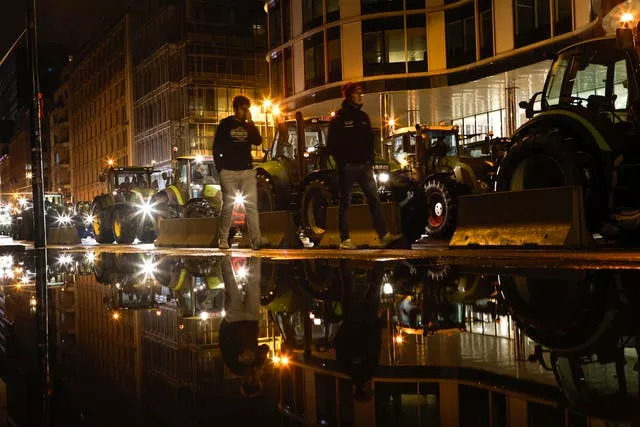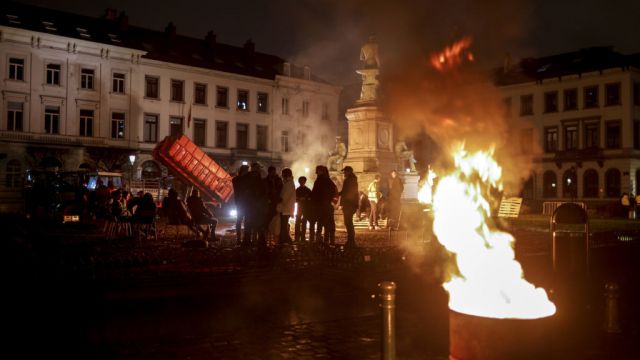Convoys with hundreds of angry farmers driving heavy-duty tractors advanced toward European Union headquarters, bent on having their complaints about excessive costs, rules and bureaucracy heard by EU leaders at a summit on Thursday.
After warming themselves at burning piles of pallets, the farmers mounted their vehicles and entered the Belgian capital to the rumble of engines, fireworks and blaring horns, in the culmination of weeks of protests around the bloc.
Even if the EU summit was supposed to be laser-focused on providing Ukraine with financial aid for its war against invading Russia, the farmers were likely to squeeze their plight on to the informal agenda.
Jean-Francois Ricker, a farmer from southern Belgium, braved the winter night close to EU headquarters and said he expected 1,000 to 1,400 vehicles.

“There will be a lot of people, we are going to show that we do not agree and that it is enough, but our aim is not to demolish everything.”
The protesters are farmers feeling ever-more squeezed by anything from higher energy prices, cheaper foreign competition that does not have to abide by strict EU rules, inflation, and climate change that either withered, flooded or burned crops.
Similar protests have been held across the EU for most of the week.
Farmers blocked more traffic arteries across Belgium, France and Italy on Wednesday, as they tried to disrupt trade at major ports and other economic lifelines.
While the days of mushrooming discontent have been largely peaceful, French police arrested 91 protesters who forced their way into Europe’s biggest food market on Wednesday, the Paris police chief said.
We propose to lend a helping hand, by allowing EU #farmers to derogate from the rules on land lying fallow.
This could help alleviate the pressure that our farmers are feeling and stay economically viable during these times of high uncertainty.
👉📝 https://t.co/jRydLCA1I8 pic.twitter.com/t5GMBovlkA— Maroš Šefčovič🇪🇺 (@MarosSefcovic) January 31, 2024
Advertisement
Armoured vehicles block entrances to the sprawling site at Rungis, south of the French capital.
Farmers arriving in Brussels on Thursday have been insisting their protest will be peaceful and security forces have handled the protests lightly so far.
The protests had an immediate impact on Wednesday – the European Commission, the EU’s executive branch, announced plans to shield farmers from cheap exports from Ukraine during wartime and allow farmers to use some land that had been forced to lie fallow for environmental reasons.
The plans still need to be approved by the EU’s 27 member states and European Parliament, but they amounted to a sudden and symbolic concession.
“I just would like to reassure them that we do our utmost to listen to their concerns. I think we are addressing two very important (concerns) of them right now,” European Commission vice president Maros Sefcovic said.







